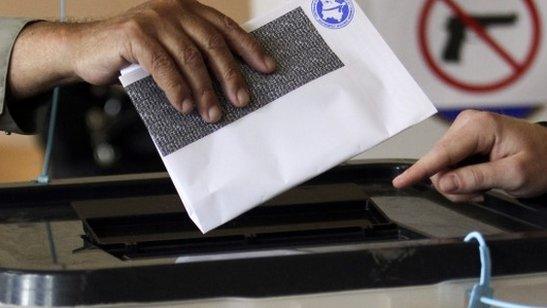Kosovo's Hashim Thaci: From guerrilla leader to president
- Published
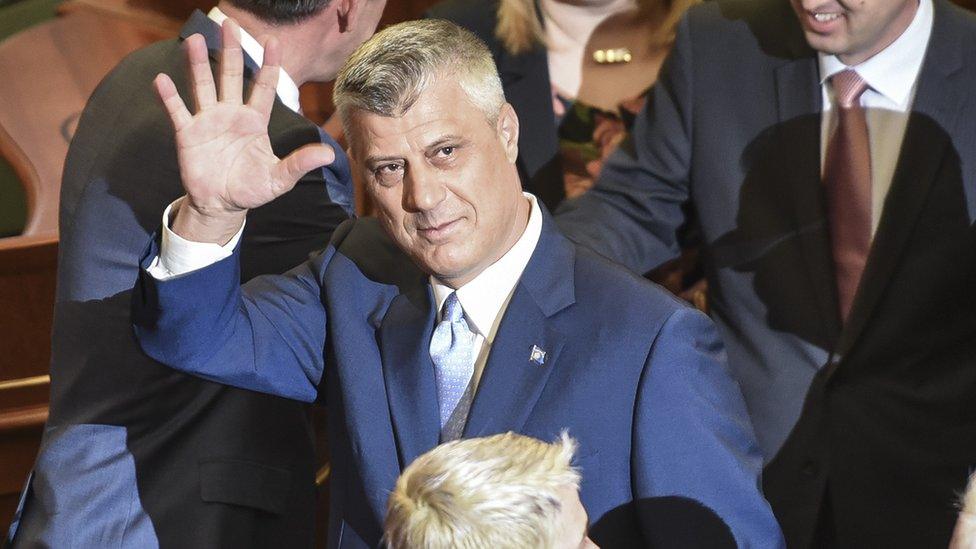
Hashim Thaci was sworn in by parliament on Thursday ahead of Friday's inauguration
The last time Kosovo held a presidential inauguration, in 2011, many of its people found themselves scrambling for information about their new head of state.
A high-ranking but low-profile police official, Afitete Jahjaga was picked when a political crisis led to the need for a non-party, consensus candidate.
In contrast, the new president, Hashim Thaci, needs no introduction in Kosovo on the day of his inauguration. He has been one of the key figures in its recent history.
In the 1990s, he was a leader of the Kosovo Liberation Army (KLA), which fought a guerrilla war against Serbia from 1998-99.

Rise and rise of Hashim Thaci
Leader of Kosovo's largest political party - the Democratic Party of Kosovo, which evolved from the Kosovo Liberation Army
Prime minister when Kosovo unilaterally declared independence from Serbia in 2008
Stayed in office until the end of 2014
Became foreign minister, handling normalisation talks with Belgrade. "I've led negotiations with Serbia for the last 16 or 17 years," he told the BBC. "That's why I'm confident that the agreements we've signed are in Kosovo's interests"
He has survived allegations of serious wrongdoing, from racketeering to, more seriously, involvement in organ trafficking dating back to his days in the KLA

Hashim Thaci told the BBC he welcomed the establishment of a tribunal in The Hague to investigate allegations against the KLA - and personally led the process to establish a special court.
"We have nothing to hide. It's an opportunity to deal with the past and move forward, and also a chance to explain that the war was a just struggle."
Ahead of his inauguration, Mr Thaci told the BBC that he was committed to tackling Kosovo's biggest problems.
"My focus will be on the rule of law, fighting organised crime and corruption." To that he added improving regional co-operation and "moving Kosovo towards EU and Nato membership".
But Mr Thaci's history counts against him, as far as his critics are concerned. And those dissenting voices have been particularly prominent in recent months - with opposition politicians repeatedly releasing teargas in parliament in protest at an agreement the new president negotiated with Serbia. That deal would allow majority ethnic-Serb areas of Kosovo a degree of autonomy.

Thaci - 'a failed foreign minister'
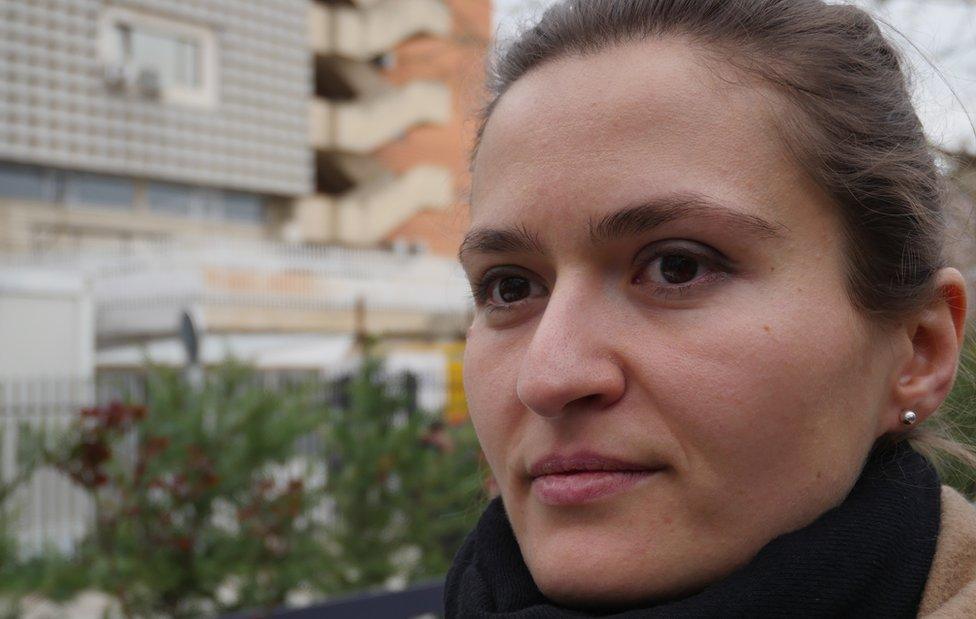
The new president's inauguration will be far from universally acclaimed, according to Besa Shahini, a policy analyst based in the capital, Pristina, who argues that Mr Thaci
Promised to deliver on foreign affairs and failed
Ran a campaign on Kosovo joining Unesco - which "not only didn't happen, but countries which actually recognise Kosovo voted against us"
Promised every year since 2010 to secure visa liberalisation to Europe's border-free Schengen zone
"Now he's president, which doesn't have too many executive functions, but it does have a representative function abroad," says Ms Shahini. "To have a man who's failed as a foreign minister, representing the country as president is very problematic."

Tear gas
Kosovo's opposition has pledged to continue to make life in parliament uncomfortable for as long as there is no debate on the agreement with Serbia.
The National Assembly has installed powerful extractor fans to clear tear gas more quickly, but a gas mask is still an essential accessory in the debating chamber.
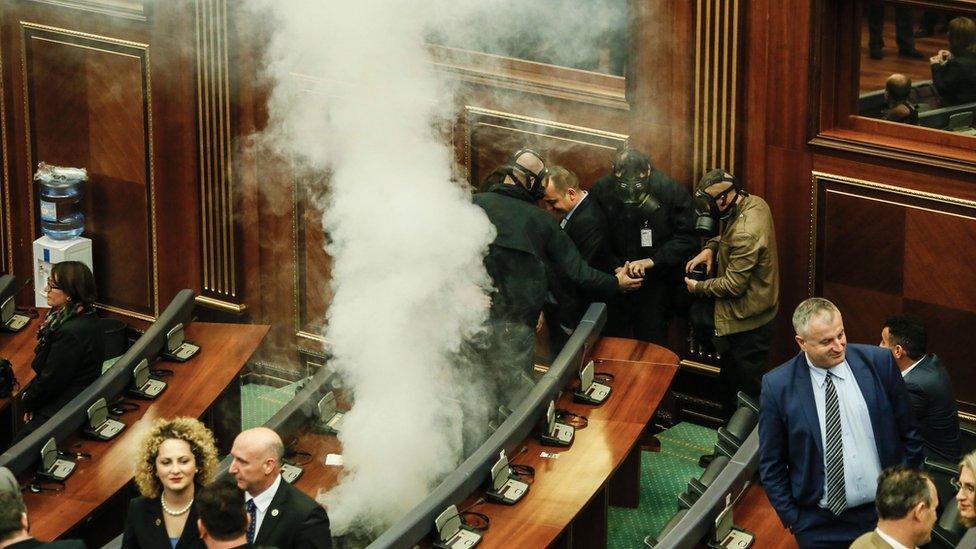
Opposition MPs have repeatedly released tear gas in parliament in protest at a deal to grant more powers to minority ethnic Serbs
"Tear gas clarified things in Kosovo; now everyone can see better," says opposition MP Albin Kurti, former leader of the Vetevendosje party. He believes the new president is part of a political elite with authoritarian tendencies.
"The separation of powers is not there in Kosovo at all; the judiciary, executive and legislature are all mixed up. We need a new republic. The path we are on now is illogical."
Mr Thaci disagrees. Stressing that Kosovo is a "normal country", he has promised, to rise above party politics in his new role. Indeed, he hopes to position himself as a unifying figure.
"I will do my best to reach out to all and work in the interests of Kosovo," he says.
For a man like Hashim Thaci that seems a formidable challenge. Kosovo is again in political crisis, but unlike his predecessor, he was not a consensus candidate.
- Published3 December 2015
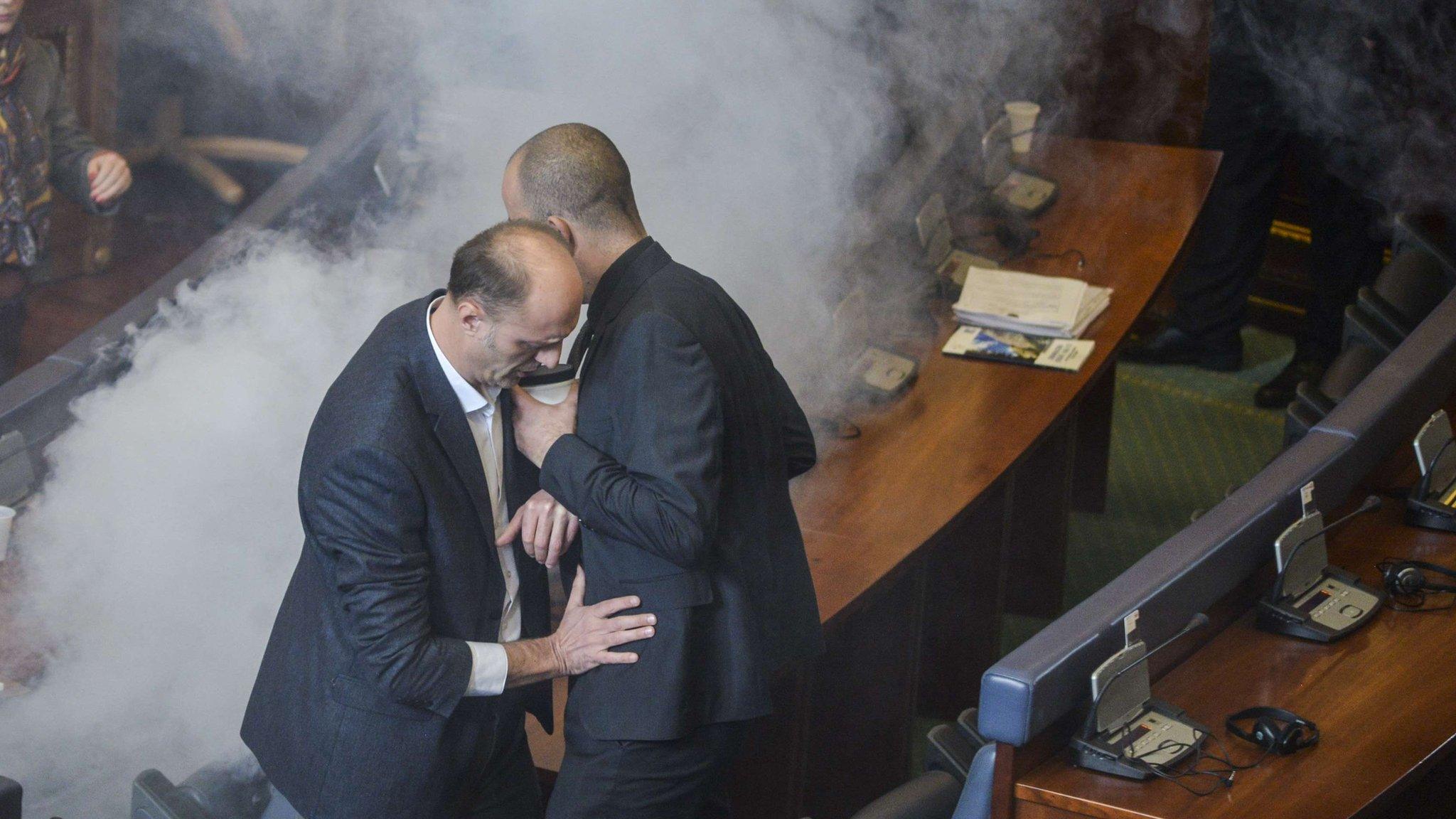
- Published26 February 2016
